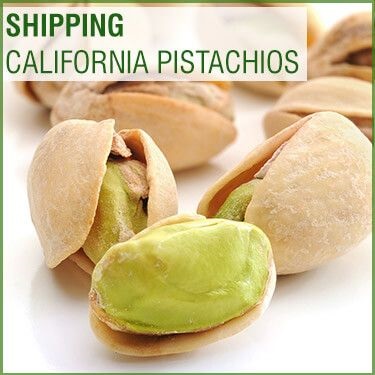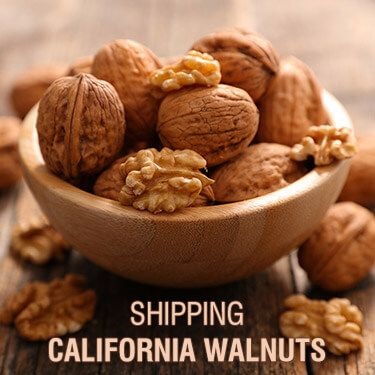Believe it or not, California almond shipping is big business. Almonds are a $4 billion-dollar industry for the state of California and take up one-quarter on the panel of the official state nuts. Also on the panel are the pistachio and the walnut. Nuts are an important commodity in California, with almonds, pistachios, and walnuts at the top of the list.
Shipping California almonds, like most nuts, requires extra care and attention. Nuts can be affected by many common conditions that accompany shipping and transportation. Almonds, pistachios, and walnuts are usually shipped in containers, cartons, or bags and can all be damaged by moisture, causing mold, and the sun, or excess heat.
California produces more almonds than virtually any other place in the world, with 8 out of 10 almonds eaten grown in California. They are the most-planted crop in the state and have 900,000 acres of agricultural land devoted to them with nearly 6,000 almond growers. Five California counties account for 73% of the total acreage: Kern, Fresno, Stanislaus, Merced and Madera. Almond harvest time traditionally begins in August.
If you plan on shipping California almonds, you’ll want to review their standard storage and shipment requirements.
They are especially delicate when shelled. Moisture damage is more likely in shelled almonds when there is high humidity.
Almonds should be fumigated before being shipped, or they may sustain damages from infestation. When almonds become water-damaged, they can attract flies which leads to maggot growth. This produced a cadaver-type odor. The time of infestation can be calculated based on any development of maggots, beetles, or other nuisance insects.
Sending your almonds east? Learn more about freight shipping from California to New York.

Pistachios from California account for 98% of the nation’s supply of the green nut. Their storage and shipment guidelines follow a similar path to almonds, but are a more delicate nut and therefore have more stringent storage and shipment conditions.
The pistachio must have the following characteristics to be considered acceptable for selling:
Pistachios are mostly shipped in cartons. Extra care should be given when shipping bulk containers of pistachios as the kernels are susceptible to self-heating and spontaneous combustions because of low water content and a high percentage of fat (45% - 55%).
Pistachio nuts are more susceptible to damage from heat, water, and moisture. Any contact with the three variables can cause a change in taste and quality. Exposure to the sun can cause dryness in addition to a change in the taste.
In addition to damage from heat or moisture, pistachios are also liable to infestation. Be cautious when shipping pistachios from the previous year’s harvest as these nuts are more prone to beetle infestation and rancidity.
Pistachio nuts also require adequate ventilation. Without proper airflow, the nuts will deteriorate and produce a strong odor. An air exchange rate of at least 10 changes/hour are the recommended ventilation conditions.
Ideally, pistachios would be stored in airtight packaging since they are so prone to absorbing moisture from the air. Excess oxygen causes the nut to become limp and promotes rancidity.
California walnuts contribute to 99% of the United State’s supply and 75% of the world’s inventory. Their storage and shipment requirements are much like those of almonds and pistachios due to their high fat/oil content.
They should be shipped in ventilated containers and avoid contact with moisture or the sun. Damp weather like rain or snow can lead to moisture, which then causes mold, spoilage and/or self-heating. Exposure to heat or the sun also risks self-heating.
Fresh walnuts have a short window in which they retain their quality. On the other hand, dried walnuts stored at a temperature of 26°F - 32°F can be kept for up to 12 months.

Naturally, you’ll want to protect your investment when shipping California almonds, pistachios, or walnuts to be rest assured they arrive at their destination in the same quality in which they departed California. Keep an eye out for any complications that arise from moisture or heat to safeguard against the following common risk factors:
Want to use a premium carrier and have competitive pricing with your shipping charges when shipping California almonds? Please contact R+L Global Logistics for top-tier customer service, competitive rates, and cutting edge technology. You can choose from a variety of truckload shipping services and have peace of mind with your shipment by using an experienced broker with a reliable supply chain and delivery times.
R+L Global Logistics also offers temperature-controlled freight shipping with the best-refrigerated trucks and vans to deliver your climate-controlled freight in excellent condition. They ensure optimal airflow through the trailer and verify product temperatures prior to loading the commodity. R+L Global Logistics has the knowledge to determine your specific needs and provide the best transportation solutions when shipping from California to Texas and everywhere in between.
R+L Global Logistics
315 NE 14th St., Ocala, FL 34470